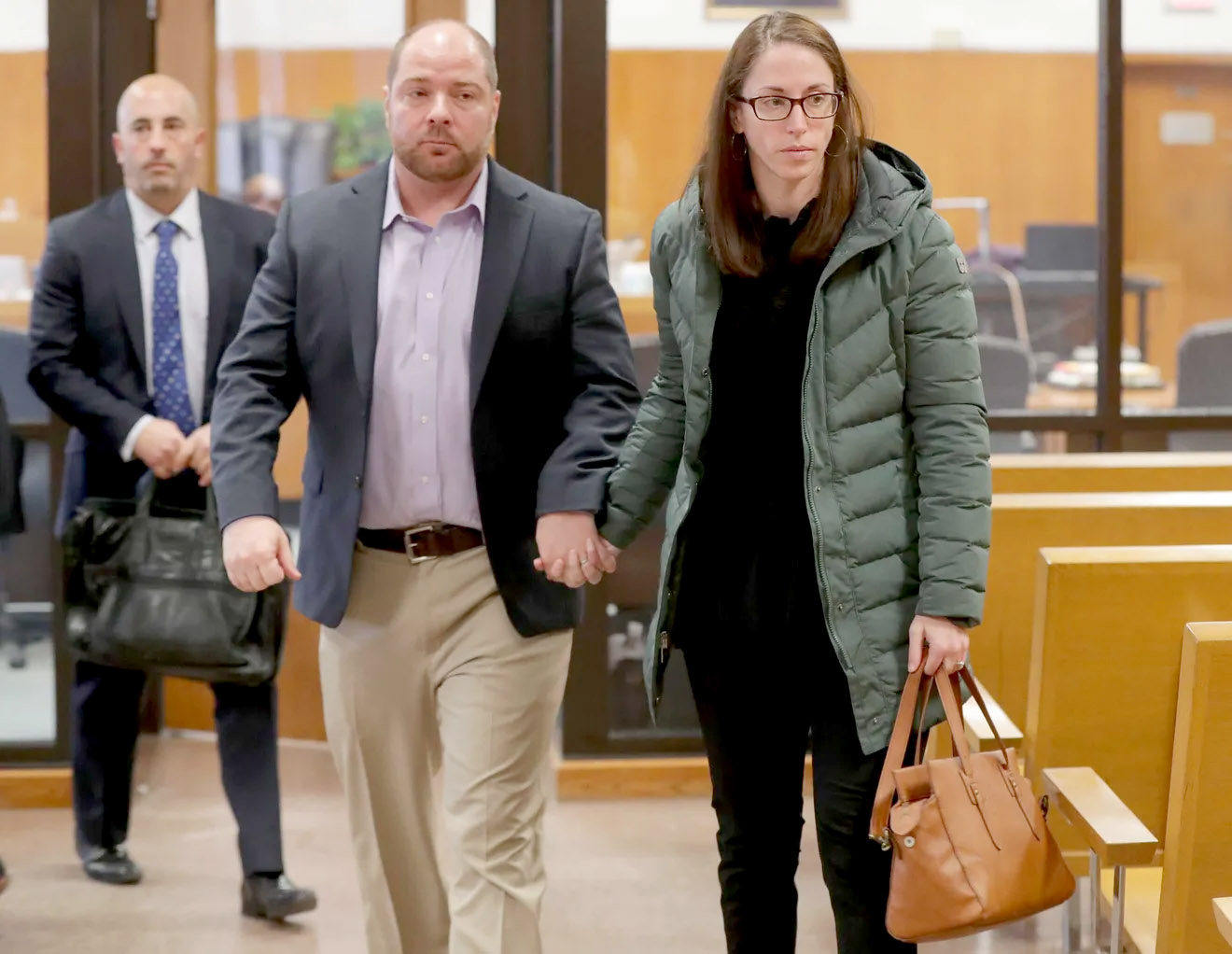
Luverne native John Cox and his wife Sarah Dobrozsi are gaining ground in a legal battle that cost them custody of the child they were in the process of adopting.
They had faced 2020 criminal child abuse charges that were dismissed May 6, and on May 9 the couple sued the people who they say wrongly accused them.
Following is the news story (shared with permission) that appeared in the Milwaukee Journal Sentinel Wednesday, May 11.
***
Wisconsin pediatrician Dr. John Cox says he was wrongly targeted by overzealous child abuse investigators and is now suing Children’s Wisconsin and several former colleagues at the Milwaukee hospital where he once worked.
Cox, 41, accuses the defendants of conspiracy, negligence, defamation and retaliation, among other claims, and of violating his rights to due process and equal protection.
Cox and his wife, Sarah Dobrozsi, formerly of Wauwatosa, filed the lawsuit in federal court in Milwaukee on Monday, three days after he successfully completed a deferred prosecution agreement from his widely publicized child abuse case from 2020.
After months of trying to dismiss the criminal charge of intentional child abuse, causing harm, Cox pleaded no contest in November to neglecting a child under age 6, as part of a deferred prosecution agreement.
The case was dismissed on Friday, upon Cox's completion of the conditions of the agreement, which required him to take parenting classes and do community service.
The couple, now living in a Chicago suburb, are represented by Loevy & Loevy, a firm involved in many high-profile civil rights cases, and Hale & Monico, another Chicago law firm.
Defendants include the Medical College of Wisconsin, Children’s hospital, several doctors, a nurse practitioner, the Division of Milwaukee Child Protective Services and supervisors and social workers with the agency.
Cox’s case divided the staff at Children’s Wisconsin, several of whom supported him during his criminal case and offered opinions that the infant's injuries were not the result of child abuse. At the time, Cox worked as an emergency room pediatrician at Children’s.
Cox and Dobrozsi, a pediatric oncologist who also worked at Children’s, were in the process of adopting an infant girl in the spring of 2019. The couple already had two older sons, also adopted.
In May 2019, when the girl was about a month old, she and Cox fell asleep in his bed. When he woke to her crying, he feared he had rolled onto her. He took her to the family’s pediatrician, worried he might have broken the baby’s collar bone.
Initial X-rays did not indicate that, but another doctor saw small marks on the insides of the baby’s arms and one on her back. He notified the hospital’s child advocacy team, and a child abuse pediatrician examined the girl. Additional tests revealed the child had a broken collarbone.
The child went home with Cox and his wife, who by agreement with the birth mother and adoption agency, were serving as pre-adoptive foster parents while the legal adoption process played out.
Later that night, a pair of investigators from Child Protective Services came to their Wauwatosa home and looked at the baby again.
Cox was charged in January 2020. The complaint listed particular bruises and the broken collarbone and concludes such conditions do not occur in nonmobile infants absent some abuse.
His lawsuit echoes what Cox and his lawyers insisted during his criminal case: “This accident was of similar magnitude and severity to incidents routinely experienced by countless other loving, skilled, careful and caring parents who, despite their best efforts, experience a momentary lapse of attention which results in an accidental minor injury to their child.”
According to Cox and Dobrozsi’s lawsuit:
When Cox awoke and had concerns the baby might be hurt, he brought her to see his regular pediatrician, Albert Pomeranz.
Because Cox admitted he had been sleeping and wasn’t sure what happened, Pomeranz said he needed to refer the matter to Hillary Petska, a pediatrician with child abuse training.
Doborzsi brought the baby to Petska later for the exam. Later, Petska, Lynn Sheets — the doctor who heads the child abuse team at Children’s — and others decided Petska had a conflict of interest because she worked with Cox and Dobrozsi.
Rita Ventura, an advanced practice nurse practitioner, examined the child the next day at the Child Advocacy Center.
A Child Protective Services worker had taken the child to that appointment from Cox’s house. Cox and Dobrozsi say they were told they couldn’t be present because, as pediatricians, they might have influence over the examiner.
Cox’s lawsuit says Ventura’s examination was “inappropriate, incomplete and deeply flawed” and should have been “supervised, reviewed and corrected” by a physician. She also got the police involved to investigate“unexplained injuries”
Wauwatosa police officers who responded to the hospital didn't find evidence of abuse, according to the suit, and said they’d been told by Ventura that the child was bruised from “head to toe,” which was not the case.
Nevertheless, Child Protective Services workers told Cox and Dobrozsi they must be supervised around their own children for a while, and Dobrozsi’s parents came to stay with them to provide that supervision.
The plaintiffs contend the defendants realized the conclusion of child abuse was wrong after weeks of their advocacy and appeals.
The lawsuit says the defendants conspired to “smear Plaintiffs’ reputations, to generate false substantiation for the allegations of abuse, and to support the decision to remove (the infant) from Plaintiffs’ care.”
The child was removed from the couple’s custody May 24, 2019, and the adoption was eventually canceled.
The lawsuit seeks unspecified compensatory and punitive damages for the loss of the child, emotional pain and suffering, mental anguish and damage to the plaintiffs’ personal and professional reputations.


